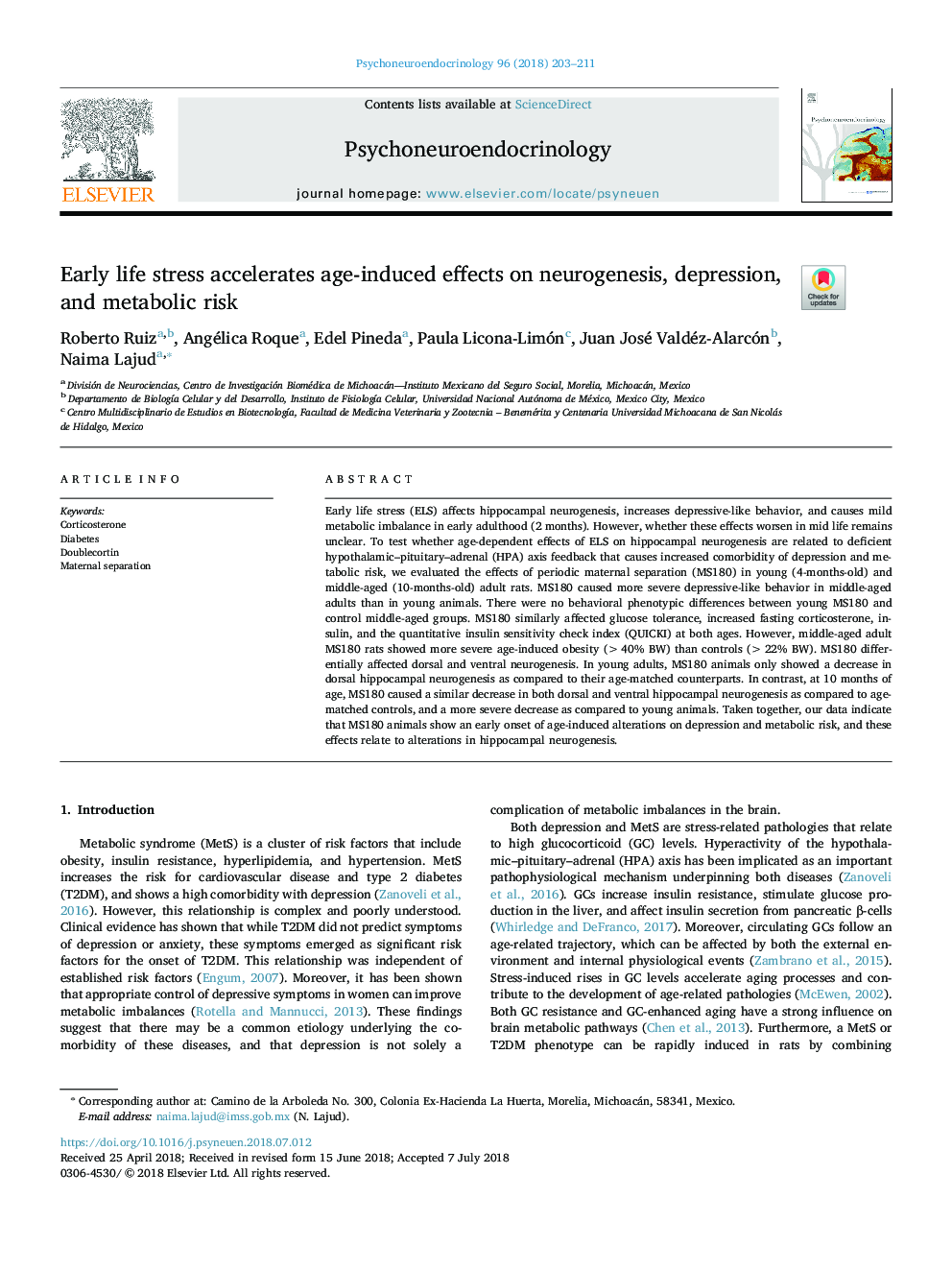| Article ID | Journal | Published Year | Pages | File Type |
|---|---|---|---|---|
| 6817521 | Psychoneuroendocrinology | 2018 | 9 Pages |
Abstract
Early life stress (ELS) affects hippocampal neurogenesis, increases depressive-like behavior, and causes mild metabolic imbalance in early adulthood (2 months). However, whether these effects worsen in mid life remains unclear. To test whether age-dependent effects of ELS on hippocampal neurogenesis are related to deficient hypothalamic-pituitary-adrenal (HPA) axis feedback that causes increased comorbidity of depression and metabolic risk, we evaluated the effects of periodic maternal separation (MS180) in young (4-months-old) and middle-aged (10-months-old) adult rats. MS180 caused more severe depressive-like behavior in middle-aged adults than in young animals. There were no behavioral phenotypic differences between young MS180 and control middle-aged groups. MS180 similarly affected glucose tolerance, increased fasting corticosterone, insulin, and the quantitative insulin sensitivity check index (QUICKI) at both ages. However, middle-aged adult MS180 rats showed more severe age-induced obesity (>40% BW) than controls (>22% BW). MS180 differentially affected dorsal and ventral neurogenesis. In young adults, MS180 animals only showed a decrease in dorsal hippocampal neurogenesis as compared to their age-matched counterparts. In contrast, at 10 months of age, MS180 caused a similar decrease in both dorsal and ventral hippocampal neurogenesis as compared to age-matched controls, and a more severe decrease as compared to young animals. Taken together, our data indicate that MS180 animals show an early onset of age-induced alterations on depression and metabolic risk, and these effects relate to alterations in hippocampal neurogenesis.
Related Topics
Life Sciences
Biochemistry, Genetics and Molecular Biology
Endocrinology
Authors
Roberto Ruiz, Angélica Roque, Edel Pineda, Paula Licona-Limón, Juan José Valdéz-Alarcón, Naima Lajud,
